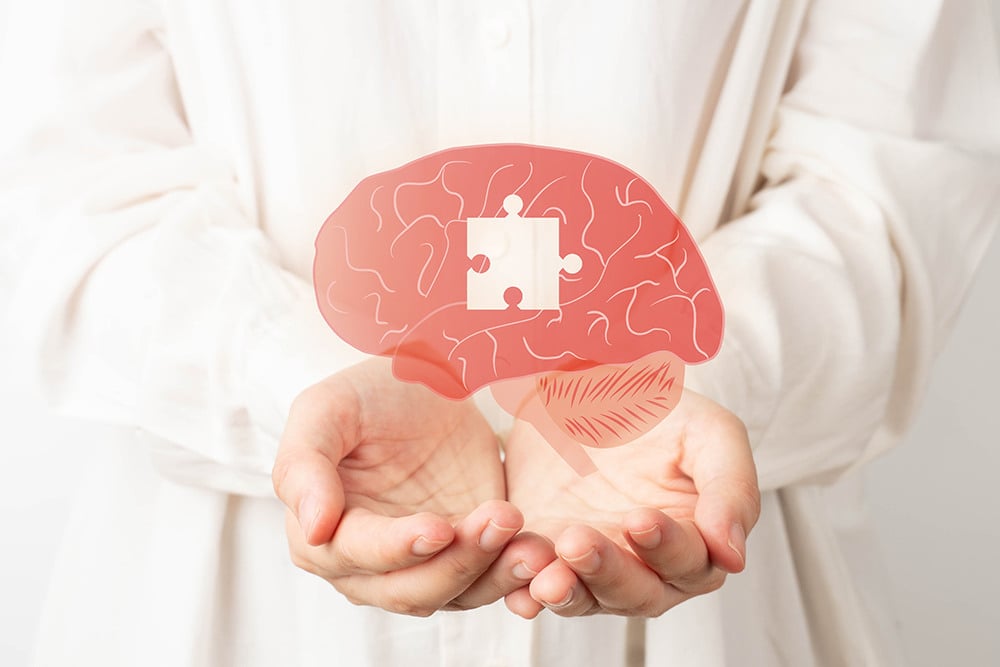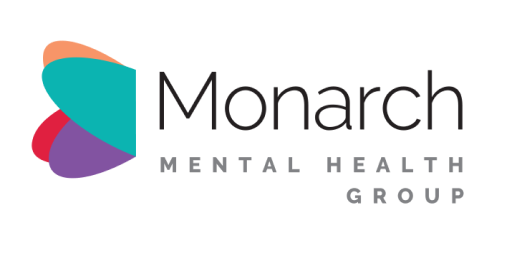Professional Anxiety Treatment in Australia
Anxiety affects millions of Australians each year. While occasional worry is normal, prolonged anxiety (Generalised Anxiety Disorder or GAD) can significantly impact your daily life. It can make it difficult to concentrate, sleep, or connect with others, making it important to seek effective anxiety treatment if your symptoms last longer than a couple of weeks.
At Monarch Mental Health Group, we understand the challenges anxiety presents. With over 20 years of experience, our team of psychiatrists is dedicated to providing effective treatment options for anxiety disorders tailored to your specific needs. We are at the forefront of innovative mental health care, offering a comprehensive approach to anxiety management.
Understanding Anxiety: More Than Just Feeling Worried
Anxiety can manifest in various forms. It's a natural response that keeps us safe in dangerous situations. However, when worry and fear become constant, disrupting your daily life, it may be a sign of an anxiety disorder.

Different Types of Anxiety Disorders
Anxiety disorders come in various forms, each with distinct characteristics:
-
Generalised Anxiety Disorder (GAD)
Persistent worry and excessive anxiety about everyday situations are hallmarks of generalised anxiety disorder. People with GAD may experience physical symptoms like fatigue, muscle tension, and sleep problems. -
Social Anxiety Disorder (Social Phobia)
An intense fear of social situations, scrutiny, and potential embarrassment defines social anxiety. Social anxiety disorder can significantly impact work, school, and social interactions. -
Specific Phobias
Intense and irrational fear of specific objects or situations, like heights, spiders, or enclosed spaces, characterises specific phobias. People with these phobias often go to great lengths to avoid their triggers. -
Panic Disorder
Panic disorder is characterised by sudden and unexpected panic attacks, characterised by overwhelming fear, physical symptoms like heart palpitations and shortness of breath, and a sense of losing control, are the hallmarks of panic disorder. -
Separation Anxiety Disorder
Excessive fear or anxiety related to separation from attachment figures is common in separation anxiety disorder. This can manifest in children and adults. -
Post Traumatic Stress Disorder
Post-Traumatic Stress Disorder (PTSD) is triggered by a past traumatic event. Nightmares, flashbacks, and intense avoidance of reminders can significantly impact daily life.
If you experience symptoms associated with any of these disorders, it's crucial to seek professional help. Early diagnosis and effective treatment can significantly improve your quality of life.
Symptoms of an Anxiety Disorder:
-
Psychological symptoms of anxiety disorders
Restlessness, excessive worry, irritability, difficulty concentrating, excessive fear, worry, catastrophising, obsessive thoughts. -
Physical symptoms of anxiety disorders
Headaches, dizziness, fatigue, insomnia, heart palpitations, shortness of breath, trembling, sweating, nausea, stomach aches. Patients can also experience panic attacks, hot flashes, racing heart, chest tightness, rapid breathing, restlessness, feeling tense or edgy. -
Behavioural symptoms of anxiety disorders
Anxiety disorders can manifest as restlessness, social withdrawal, and difficulty meeting daily responsibilities. In severe cases, avoidance behaviours may significantly impact work, school, and social life.
What Causes Anxiety Disorders?
The exact cause of anxiety is unknown, but several factors contribute, including genetics, life events, and certain personality types.
Risk Factors for Anxiety Disorders
People with the following risk factors have a greater chance of developing anxiety:
- Family history of anxiety
- Existing mental health conditions
- Chronic stress
- Abuse (physical, sexual, verbal, domestic)
- Life-threatening events
- Pregnancy and childbirth (for the pregnant person or partner)
- Substance use (stimulants, alcohol, sedatives)
- Drug or alcohol withdrawal
- Perfectionism, low self-esteem, or a need for control

Taking Control: Self-Care Strategies for Anxiety Disorders
Small lifestyle changes can significantly benefit those struggling with anxiety disorders, helping to reduce anxiety symptoms:
-
Stay Active
Physical exercise is proven to improve mental well-being and contribute to managing symptoms of anxiety disorders as well as helping to treat depression. -
Practice Mindfulness
Meditation and breathing techniques can reduce stress hormones, anxiety and depression. -
Build a Support Network
Connect with loved ones and share your feelings. -
Educate Yourself
Learn about anxiety disorders and available treatment options. -
Journal
Write down your thoughts and feelings to gain clarity and reduce anxiety.
Effective Treatments for Anxiety Disorders in Australia
Many people find relief with self-care strategies, but seeking professional help is essential for managing anxiety disorders effectively. At Monarch Mental Health Group, we offer a range of evidence-based treatment options, including:
-
Psychological therapies
"Talking therapies" like Cognitive Behavioural Therapy (CBT) help manage negative thought patterns and develop coping mechanisms when you have an anxiety disorder. -
Medication
Antidepressants and other medications for anxiety disorders can help regulate brain chemicals and alleviate symptoms.
Next-Step Anxiety Disorder Treatments: When Standard Options Fall Short
For some individuals, first-line treatments for anxiety disorders, especially severe anxiety, panic disorder, or PTSD, may not be sufficient. Up to 40% of patients with anxiety disorders may require additional interventions. Monarch Mental Health Group offers next-step treatment options alongside psychological therapy like:
-
Repetitive Transcranial Magnetic Stimulation (rTMS)
Repetitive Transcranial Magnetic Stimulation (rTMS) provides a safe and non-invasive next-step option. It uses targeted magnetic pulses to stimulate brain regions involved in mood regulation, offering potential relief from anxiety disorder symptoms. -
Next-Step Medications and Therapies
We offer a wider range of medication options to address treatment-resistant anxiety disorders and any co-occurring mental health issues, including obsessive compulsive disorder (OCD) and depression.
Our Anxiety Treatment Process at Monarch Mental Health Group
At Monarch Mental Health Group, we prioritise a clear and supportive journey towards managing your anxiety disorder. Here's what you can expect:
Consultation
Our bulk-billed initial consultation allows you to connect with a qualified psychiatrist. This session focuses on understanding your unique experiences, symptoms, and goals for treatment. We'll work collaboratively to develop a personalised plan for your anxiety disorder.
Personalised Treatment
Based on the consultation, your psychiatrist will create a treatment plan that fits your specific needs. This plan may incorporate various approaches, such as:
-
Psychological Therapies
Techniques like cognitive behaviour therapy, teaching coping techniques, and practical advice from your mental health professional to manage anxiety, address negative thought patterns, and develop coping skills. -
Anxiety Disorder Medication
When appropriate, selective serotonin reuptake inhibitors (SSRIs) and other medication can help in the treatment of anxiety, regulating brain chemicals and improving symptoms. -
Next-Step Treatments
For more resistant anxiety disorders, we offer innovative options like rTMS therapy to stimulate brain regions involved in anxiety.
Ongoing Monitoring
We prioritise your well-being. Regular follow-up appointments allow us to track your progress, your psychological and physical symptoms, adjust the plan as needed, and ensure you're on the path to lasting relief from anxiety. We'll keep you informed and supported throughout this process.Our Difference
Psychiatrist-led mental health service
Fast access to all services
Evidence-based, individualized treatment programs
*Please note - only Monarch Group initial assessments are bulk billed. Accessing clinicians through our consulting suites will incur out-of-pocket costs.
Don't Let Anxiety Hold You Back. Take the First Step Today.
At Monarch Mental Health Group, we treat a wide range of mental health conditions, including anxiety disorders. We are dedicated to helping you manage your anxiety and regain control of your life. Book your initial consultation with our experienced psychiatrists today. Together, we can create a personalised treatment plan for your anxiety disorder, improving your quality of life.
Frequently Asked Questions
If you experience excessive worry or fear that disrupts your daily life for more than two weeks, along with physical symptoms like racing heart, difficulty sleeping, or muscle tension, it's important to seek professional help. These could be signs of an anxiety disorder, and will need diagnosis and treatment from a mental health professional.
We offer a range of evidence-based therapies from mental health professionals to manage anxiety, including:
-
Cognitive Behaviour Therapy (CBT)
Helps you identify and challenge negative thought patterns that contribute to anxiety and develop healthy coping mechanisms. -
Other psychotherapy approaches
We offer various therapeutic treatments for anxiety tailored to your specific needs. -
Repetitive Transcranial Magnetic Stimulation (rTMS)
Repetitive Transcranial Magnetic Stimulation (rTMS) offers a promising next-step option for anxiety disorders. This safe, non-invasive treatment uses targeted magnetic pulses to stimulate brain areas linked to mood regulation, potentially reducing anxiety symptoms. It is also used to treat depression.
Yes, when appropriate, your psychiatrist may prescribe medication to help regulate brain chemicals and alleviate anxiety symptoms, including physical symptoms and psychological symptoms. Medication is offered as part of a more comprehensive treatment plan that may include cognitive behaviour therapy and rTMS. They will discuss the potential benefits and side effects of any medication with you before making a recommendation.
Next-step treatments are for individuals who haven't achieved significant improvement with first-line options like therapy and medication. This can include cases of severe anxiety, social anxiety disorder, panic disorder, and even PTSD. At Monarch, we offer options like rTMS (repetitive transcranial magnetic stimulation), which uses magnetic pulses to target specific brain regions involved in anxiety. During your consultation, your psychiatrist will discuss whether next-step treatments might be a good fit for your treatment plan.
The duration of treatment for anxiety varies depending on your diagnosis, the severity of your symptoms and your response to treatment. For example, a case of mild or moderate anxiety tends to require shorter treatment than a case of severe anxiety, PTSD, social phobia, or severe panic attacks. We will work with you to establish realistic goals and monitor your progress to determine the appropriate length of treatment.
Several self-care strategies can be helpful alongside professional treatment. These include:
-
Regular exercise
Physical activity is a powerful tool for reducing stress hormones and anxiety symptoms. -
Mindfulness practices
Meditation and breathwork can help you become more aware of your thoughts and emotions and manage them effectively. -
Building a support network
Talk to trusted friends and family about how you're feeling. Their support can make a big difference.
At Monarch Mental Health Group, we understand the impact anxiety has on your life. We offer a comprehensive approach to anxiety management, with experienced psychiatrists, evidence-based therapies, and next-step options like rTMS. We prioritise your well-being and work collaboratively with you to develop a personalised treatment plan to help you achieve lasting relief from anxiety. Contact us today for an initial consultation.

